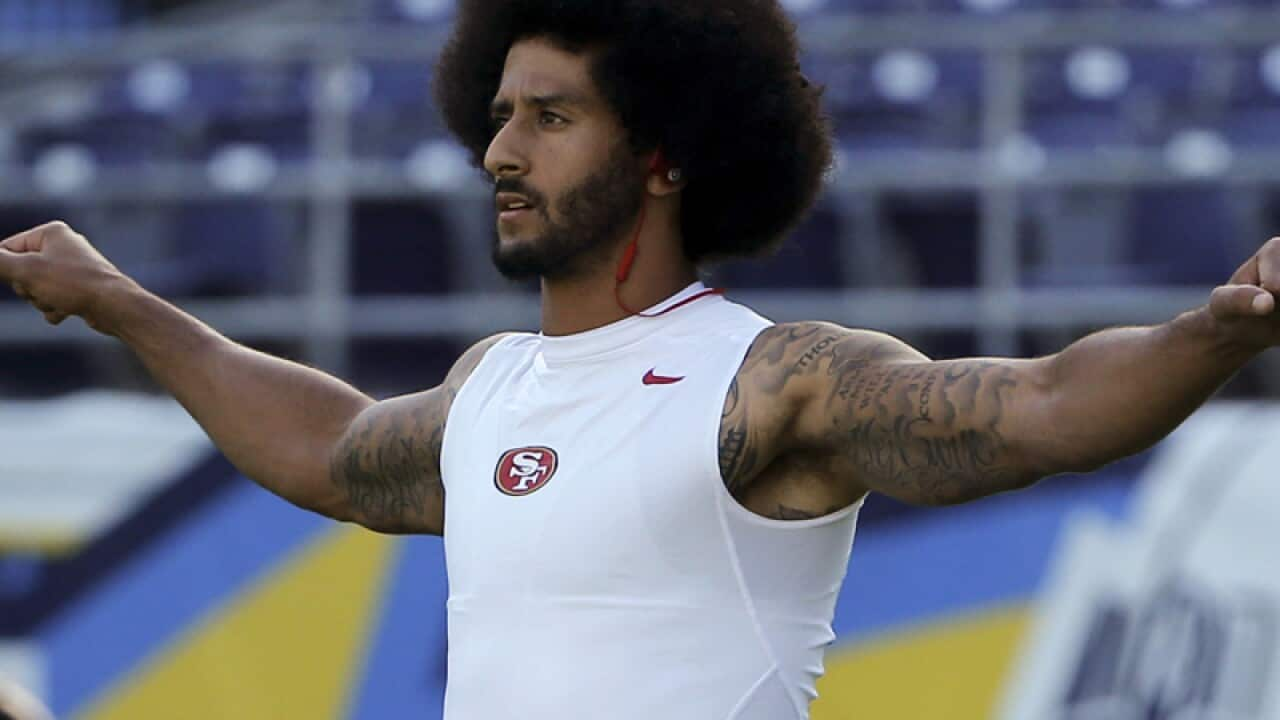But his struggle with addiction cut his career short. He bounced back in 2013 as an international boxing champion and then as a mental health advocate.
Now, he's calling for Indigenous sports stars not to stand during the national anthem.
"It's for our future," he says.
"I've grown up as an Aboriginal man that was looked (at) differently and treated differently because of the colour of my skin.
"I believe that national anthem does not represent our people.
"That every time we see the flag raised, it shows the Union Jack. And to us that represents bloodshed and torture and rape of mass people, by the thousands.
"How disrespectful do you think it is to our people that have to stand through that?"
Williams has held these views for a long time, even taking a stand against the national anthem almost a decade ago. "You know, there was a picture of me when I was playing for Souths and all the team was embraced to sing the national anthem and I stood off by myself.
"You know, there was a picture of me when I was playing for Souths and all the team was embraced to sing the national anthem and I stood off by myself.

Photo supplied by Otis Williams from Deadly Photography. Source: The Feed
"That was like my silent little protest back in 2007."
Williams said the movement "kicked off in a big way" in the US, when San Francisco 49ers star star Colin Kaepernick choose to sit down rather than stand during the American national anthem in support of the Black Lives Matter movement.
It sparked national and international attention, with some calling his actions disrespectful while others praising his bravery for making a stand on such a public platform.
"People say that the whole Black Lives Matter thing is an American campaign and we shouldn't bring it here," says Williams.
"But the oppression of our people, Aboriginal and Torres Strait Islander First Nation people, out here in Australia is on par with anyone in the world.
"A two weeks ago. He got shot in the back, unarmed. "He's alive, he's awake, but... We want answers.
"He's alive, he's awake, but... We want answers.

Source: The Feed
"We want answers, you know?"
Williams hasn't been without his own struggles, fighting addiction while simultaneously trying to 'make it' as a professional sports star.
"Alcoholism was rampant in my family and ... rampant with my teenage years as well," he says.
"The addiction process was laying dormant, waiting to erupt in my body.
"I grew up wanting to be a Rugby League star, you know, and I soon found myself drinking alcohol and taking drugs as the priority, not training and being the best Rugby League player I could.
"The oppression of our people, Aboriginal and Torres Strait Islander First Nation people, out here in Australia is on par with anyone in the world."
"I went from a red hot start in the NRL to a really average season.
"You know, you drink as much alcohol as you possibly could, if you're like me and couldn't handle it, and then you take as much drugs as you possibly could to sober yourself up, just to keep partying again.
"My life was either going to end up in jail or dead I had to make a decision to smarten up pretty fast, cos I was damaging all the people around me and I was losing my family.
"I was pushing everyone away from me and I made the decision to give away alcohol and drugs."
Williams has now been sober for 11 years, but says it's something he still "battles" it.

Source: The Feed
Tune in to #TheFeedSBS at 7.30pm Monday - Friday on SBS 2, stream , or follow us on , , ,, or .
The Feed would like to thank Otis Williams from for several images used in this story.


